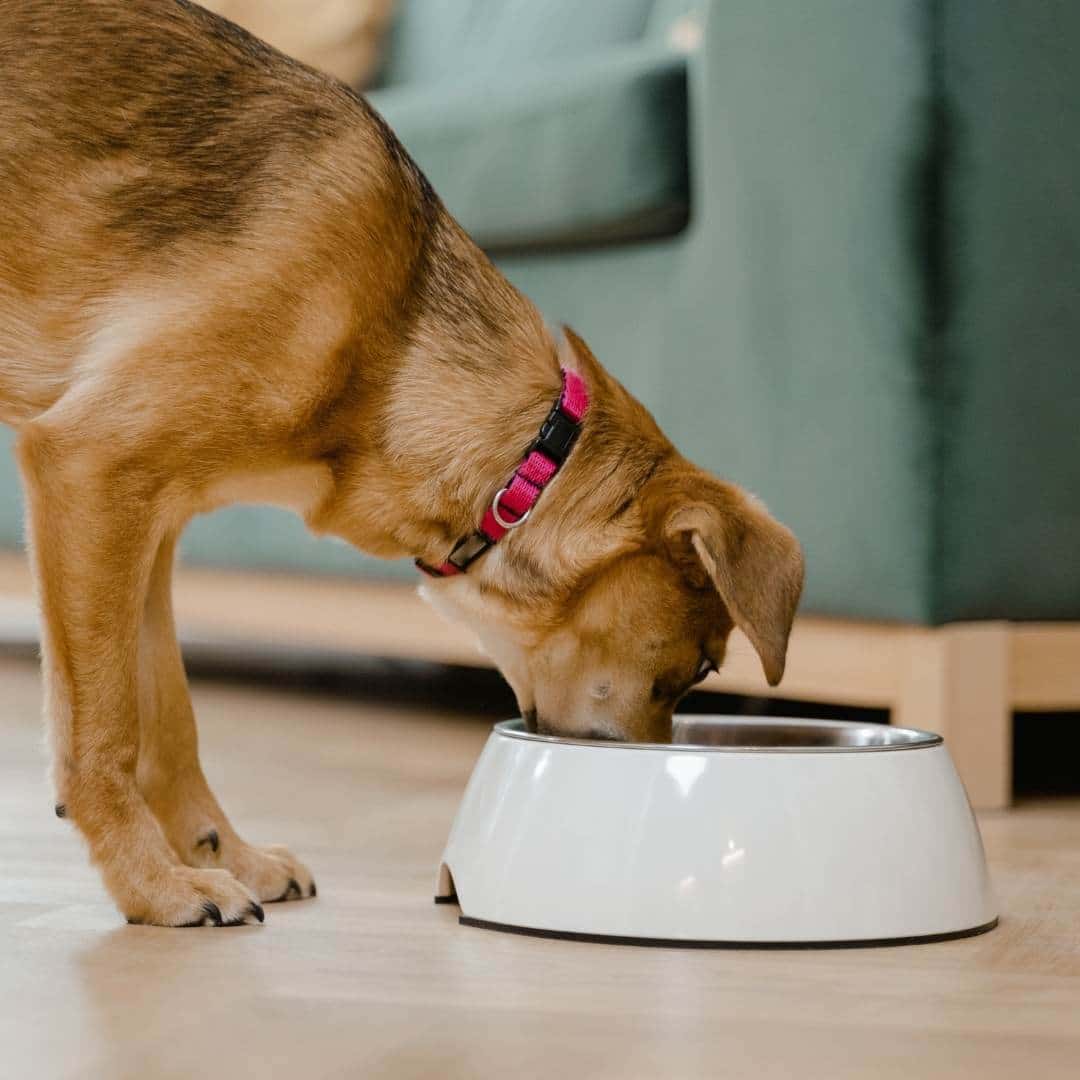Can dogs have coffee ice cream?
As pet owners, it’s natural to want to share our favorite treats with our furry friends. However, not all human foods are safe for dogs. One such example is coffee ice cream, a popular dessert that many wonder if it’s safe for their canine companions to enjoy.
Dogs’ digestive systems are not designed to handle certain ingredients found in coffee ice cream, which can lead to potential health risks. One significant issue is that it contains caffeine, a substance known to be toxic for dogs.
While humans can consume caffeine with minimal adverse effects, even a small amount can cause serious problems for dogs, including restlessness, seizures, and in severe cases, life-threatening consequences.
In addition to caffeine, ice cream itself poses challenges for many dogs. Most canine systems are not equipped to digest lactose, a sugar present in dairy products like ice cream. This can lead to gastrointestinal discomfort or symptoms of lactose intolerance, such as bloating, gas, and diarrhea.
Can Dogs Safely Consume Coffee Ice Cream?

Caffeine Toxicity in Dogs
Caffeine is a major concern when it comes to dogs and coffee ice cream. Dogs are highly sensitive to caffeine, and even small amounts can be toxic to them. Symptoms of caffeine toxicity in dogs can include vomiting, irregular heartbeat, increased body temperature, and seizures.
In severe cases, caffeine may cause coma or even death in canines. As a general rule, it is best to avoid giving your dog any product containing caffeine, including coffee ice cream.
Dairy and Lactose Intolerance in Canines
Apart from caffeine, coffee ice cream is made primarily of dairy products, which can be problematic for dogs. Lactose intolerance is not uncommon in canines, making it difficult for them to digest lactose found in dairy products like ice cream.
Consuming dairy products may lead to gastrointestinal issues in dogs, such as diarrhea and gas.
Here is a table showing some undesirable ingredients that can be found in coffee ice cream for dogs:
| Ingredient | Risks to Dogs |
|---|---|
| Caffeine | Toxicity, seizures |
| Dairy products | Lactose intolerance |
| Artificial sweeteners | Potential toxicity |
While it might be tempting to share your coffee ice cream with your canine companion, it is not a safe option due to the risks mentioned above.
Instead, consider offering healthier alternatives like dog-safe frozen treats made from pet-friendly ingredients such as unsweetened pureed fruit and dog-friendly yogurt.
Potential Health Risks

Gastrointestinal Upset
Dogs consuming coffee ice cream can experience gastrointestinal upset due to the combination of caffeine and dairy present in the treat. Caffeine is toxic to dogs, and ingesting even a small amount can cause symptoms ranging from restlessness to seizures.
Additionally, dairy products, like the ice cream base, can lead to bloating, diarrhea, and gas in dogs, as they often have difficulty digesting lactose.
Pancreatitis Risk
Another health concern for dogs eating coffee ice cream is the risk of developing pancreatitis. Ice cream is typically high in fat, which can trigger inflammation in the pancreas when consumed in large amounts, especially by dogs who are predisposed to the condition. Symptoms of pancreatitis in dogs may include:
- Vomiting
- Diarrhea
- Loss of appetite
- Abdominal pain
If a dog exhibits any of these symptoms after consuming coffee ice cream or any high-fat treat, it is essential to consult with a veterinarian immediately.
Sugar Content and Obesity Concerns
Besides caffeine and dairy, coffee ice cream also contains high levels of sugar, which can contribute to an increased risk of obesity and related health issues in dogs. Excessive sugar consumption can lead to:
- Weight gain
- Dental problems
- Insulin resistance
- Diabetes
To maintain a dog’s optimal health, it is crucial to avoid feeding them treats high in sugar, like coffee ice cream. Instead, opt for healthier alternatives, such as dog-specific treats or fruits and vegetables safe for canine consumption. This will help reduce the chances of weight-related health problems and ensure the well-being of your pet.
Safe Alternatives to Coffee Ice Cream

Dogs should not consume coffee ice cream due to the presence of caffeine, which can be harmful to them. However, there are safe and delicious alternatives that you can offer your furry friend as a treat.
Dog-Friendly Frozen Treats
Luckily, there are a variety of dog-friendly frozen treats available in stores as well as options you can prepare at home. Look out for treats specifically formulated for dogs, which are made with safe and healthy ingredients, and are free of caffeine and other harmful substances. Some popular dog-friendly frozen treat options include:
- Frozen Yogurt: Opt for yogurt-based treats that are low in sugar and free of artificial sweeteners like xylitol. Make sure the yogurt is plain and unflavored.
- Frozen Fruit: Many dogs enjoy frozen fruit such as blueberries, bananas, and strawberries. Just remember to remove any seeds or cores before offering them to your dog.
Homemade Ice Cream Recipes for Dogs
Creating homemade ice cream recipes for your dogs can be a fun and rewarding experience. Here are a few ideas for simple, healthy, and dog-friendly ice cream recipes:
- Peanut Butter Banana Ice Cream:
- 2 ripe bananas, mashed
- 1 cup plain, unsweetened yogurt
- 2 tablespoons natural peanut butter (ensure it’s xylitol-free)
- Blend all the ingredients together and freeze in an ice cube tray or small containers.
- Pumpkin Apple Ice Cream:
- 1 cup canned pumpkin puree (make sure it’s sugar-free and free of any additives)
- 1/2 cup unsweetened applesauce
- 1 cup plain, unsweetened yogurt
- Mix all the ingredients together and freeze in an ice cube tray or small containers.
Always remember to introduce any new treats gradually and in moderation, and monitor your dog for any adverse reactions, like upset stomach or allergies. Offering safe alternatives to coffee ice cream will allow your dog to enjoy frozen treats without jeopardizing their health.
Understanding Dog Nutrition

Nutritional Requirements for Dogs
Dogs have specific nutritional needs to maintain their overall health and well-being. Their diet should provide a balance of proteins, fats, carbohydrates, vitamins, and minerals. Here’s a general overview of the essential nutrients for dogs:
- Protein: The main component of a dog’s diet, providing essential amino acids for muscle growth and repair. It can be found in sources such as meat, fish, and eggs.
- Fats: Crucial for energy, they help with the absorption of fat-soluble vitamins (A, D, E, K) and provide essential fatty acids. Common sources include animal fats and plant-based oils.
- Carbohydrates: Although not a dietary requirement, carbs can offer a source of quick energy. They come from grains, legumes, and some vegetables.
- Vitamins and Minerals: These micronutrients play various roles in maintaining overall health. Calcium and phosphorus, for example, contribute to strong bones and teeth.
A well-balanced commercial dog food usually meets these nutritional requirements. However, dog owners can consult with a veterinarian for specific dietary recommendations based on their dog’s age, size, and activity level.
Harmful Foods to Avoid
While it may be tempting to share treats with your furry friend, some human foods can be harmful or even toxic to dogs. A few examples include:
- Chocolate: Contains theobromine, which is toxic to dogs and can cause vomiting, diarrhea, rapid breathing, and seizures.
- Grapes and Raisins: Can lead to acute kidney failure in dogs.
- Onions and Garlic: Contain compounds that can cause anemia, lethargy, and weakness in dogs.
- Xylitol: A sugar substitute found in sugar-free gum, candy, and some peanut butter, xylitol can cause a rapid release of insulin, leading to hypoglycemia (low blood sugar), seizures, and liver failure in dogs.
Coffee ice cream should also be avoided, as it contains caffeine and possibly xylitol, both of which are toxic to dogs. Caffeine can cause vomiting, irregular heartbeat, increased body temperature, and seizures in dogs. In large doses, it can be life-threatening. It is best to keep coffee ice cream and other caffeinated products out of your dog’s reach.
What to Do If Your Dog Eats Coffee Ice Cream

Immediate Steps to Take
If your dog accidentally consumes coffee ice cream, it’s crucial to take action immediately. Coffee ice cream contains caffeine, which is toxic to dogs and can cause various symptoms ranging from restlessness to seizures. Follow these steps to help your dog:
- Stay calm: Panicking won’t help either you or your dog. Remain composed and gather your thoughts.
- Assess the situation: Determine the amount of coffee ice cream your dog has consumed. If possible, note the ice cream’s caffeine content.
- Monitor your dog: Keep a close eye on your dog for any adverse reactions, such as vomiting, diarrhea, increased heart rate, or hyperactivity.
Related: Smart Gadgets For Pet Owners
When to Contact the Vet
It’s essential to contact your vet if:
- Your dog has consumed a significant amount of coffee ice cream or has ingested coffee beans or grounds.
- The dog shows severe symptoms such as tremors, seizures, or collapse.
- Symptoms persist or worsen despite any at-home care.
Your vet may recommend inducing vomiting, treating the dog with activated charcoal, or administering intravenous fluids, depending on the severity of the situation. Early intervention is key, so don’t hesitate to reach out to your veterinarian if you’re unsure about how to proceed.
Contributed by Kris Silvey. He is a software engineer, dog lover and founder of Elevated Coffee Brew.
Read Next: Can Dogs Eat Canned Chicken
